“They’re sharing a drink they call loneliness. But it’s better than drinking alone.”
— Billy Joel, Piano Man
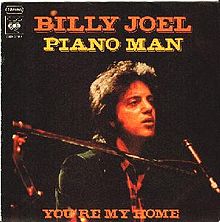 My late father-in-law lived long enough, and wound up prosperous enough, to write and publish his own autobiography. He asked me to ghostwrite it. I said he’d do a much better job.
My late father-in-law lived long enough, and wound up prosperous enough, to write and publish his own autobiography. He asked me to ghostwrite it. I said he’d do a much better job.
He did.
He called it Never Alone.
My father in law felt blessed to have grown up in a large family, finding a great wife soon after leaving home, to spend a working life in service to the public, then aging gently amidst grown children, grandchildren, and even some great-grands. He was a member in good standing of the “Greatest Generation.”
While that generation’s reticence in talking about themselves, and their trust in governments that didn’t deserve trust (as in Vietnam), caused a rift between their generation and mine, our own values of independence and individuality haven’t worked out as well for us, and our children, as theirs did for them.
 Today’s crisis began during Vietnam, as institutions like the Rotary and Kiwanis became atomized, replaced by tribes of church and school. The walls of our lives eventually closed in. We found families disposable, and our kids took on that lesson. Many millennials don’t have families and live alone. Don’t blame the Internet for that.
Today’s crisis began during Vietnam, as institutions like the Rotary and Kiwanis became atomized, replaced by tribes of church and school. The walls of our lives eventually closed in. We found families disposable, and our kids took on that lesson. Many millennials don’t have families and live alone. Don’t blame the Internet for that.
I’ve been fortunate. I freely admit to having had sex with my father-in-law’s daughter. I fell in love at age 20 and never fell out. She has survived these 42 years, even thrived, because she happens to be brilliant and, thanks to both her parents, has good values.
In general, however, loneliness has been increasing in America.
Average household size in the U.S. has been falling for decades, from 3.3 in 1960 to just over 2.5 today. Since this includes immigrants and religious groups in large families, it means more-and-more of us live entirely alone.
There are “experts” blaming rising youth suicide on digital media .
This is bullshit.
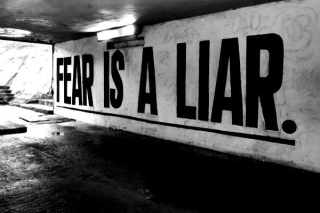
My generation, and today’s parents, raise children in an atmosphere of fear. Fear of people who might be different than us. Fear of people who might hurt us, psychologically, sexually and physically. As a result, our kids have no one to talk to.
I see it in my own kids. Both are, for members of their cohort, doing well. One is financially independent, the other wants to cut the purse strings this year.
But they’re both alone, at ages well beyond my wife and I were when we found one another. They’re scared. I can hear it in their voices.
But here’s a secret.
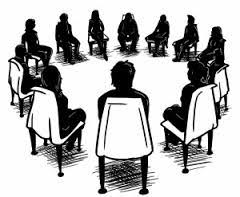
There is only one cure for this, communication. It’s friendship. Scaring kids about the Internet, monitoring their every mouse click, only makes the problem worse. It’s just what my generation of parents did by regimenting our kids’ lives.
We all need someone to talk with, someone we can reveal ourselves to, and share our fears with. We all need someone to hear us, who won’t judge us, who will support us unconditionally, no matter how we screw up.
I found it. My kids haven’t.
Absent a loving relationship, absent the true friendship called intimacy, we are all left in our own minds, alone. That’s a terrible place to be. It’s hell on earth.
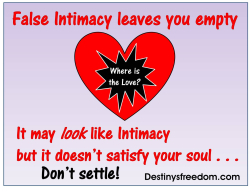
There is a false intimacy in speaking only with those who agree with you. Whether we isolate ourselves by class, by color, or by politics, we’re not communicating, just nodding together over whatever those around us say.
This medium, this Internet, had the capacity to break through that, but trolls and bots and the lesser angels of our nature have polluted it. The few who benefit from all this, the ultra-wealthy, the power mad, are in turn destroying their own creation, because it’s human capital that is the gating factor in economic growth, and without healthy minds you can’t create lasting value.
How do we get out of this?
As with other mental disorders, it helps first to admit the problem. Even therapy can help. So can meetings, with people who are unlike us but share the same problems. It sometimes seems that ex-addicts are the healthiest people in society. At least they know where a meeting is.
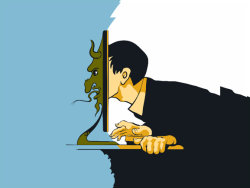
If you can’t make any real friends, start online. Block and ignore trolls, bots, people who only want to fight or sell you something. Embrace those who extend the honest hand of friendship. Look for online friends who share your interests. Find out where they are getting together and go see them, not alone but in groups. It’s like dating. If you don’t like them, find another crowd. But find some people, even if it’s in a bar. Keep looking.
What we need to do, to get past our current crisis, is rebuild the ideas of community and connection from the ground up. This medium can help in that. Anyone who tells you “the Internet is the problem” is selling something you shouldn’t be buying.
Maybe, if we’re lucky, sometime early in the 22nd century, some aging member of our grandchildren’s generation will write an autobiography called Never Alone.
That is the way to happiness.


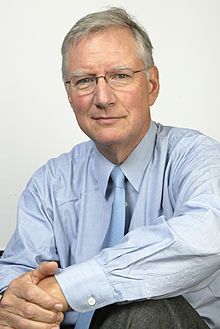








The song no man is an island rhymes with this perception, great thinking.
The song no man is an island rhymes with this perception, great thinking.
Loneliness can be contagious. Loneliness can spread much like the common cold. While a cold or flu bug might be spread through a handshake, loneliness can spread through groups of people via negative social interactions.
Loneliness, according to many experts, is not necessarily about being alone. Instead, it is the perception of being alone and isolated that matters most.
Loneliness can be contagious. Loneliness can spread much like the common cold. While a cold or flu bug might be spread through a handshake, loneliness can spread through groups of people via negative social interactions.
Loneliness, according to many experts, is not necessarily about being alone. Instead, it is the perception of being alone and isolated that matters most.